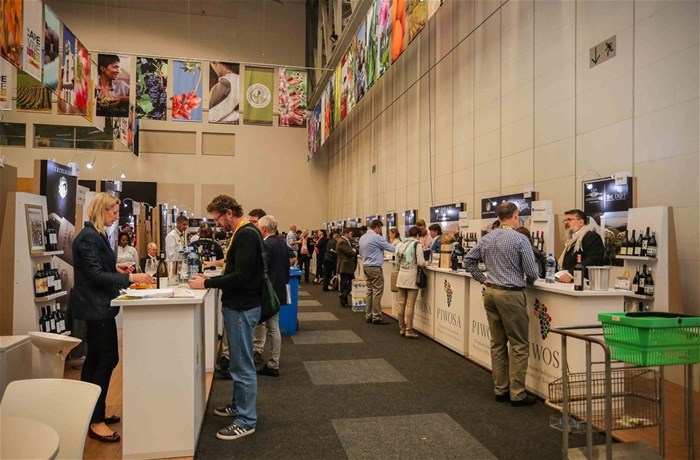
As the City of Cape Town has instituted Level 6B water restrictions amidst worsening drought conditions, The Cape Town International Convention Centre (CTICC) has been working with clients and event organisers to ensure that major upcoming events don’t place further pressure on water resources.
In a client letter, Ellingson explained: “The CTICC is open for business. Our focus remains on reducing water use wherever possible and ensuring our events run successfully and in a responsible manner.”
The CTICC started implementing water savings initiatives long before the current crisis. Over the last six years, the centre has reduced its consumption by an average of eight million litres per year.
As part of its commitment to reduce water usage and avoid Day Zero, the centre’s water savings initiatives include:
• Stopping the water supply to bathroom hand-wash basins and offering hygienic, waterless hand sanitizers as an alternative.
• Serving only bottled water, sourced from certified producers outside of the Western Cape.
• Using water-wise cooking methods such as steaming and augmenting the supply of water to kitchens from non-municipal sources.
• Installing 65,000 litres of rainwater storage tanks. The water is re-used for cleaning activities.
• Using the centre’s air-cooling system to create water from air. This water is being collected in 10,000-litre capacity grey water tanks for re-use.
• Reducing dishwashing and laundry loads by giving clients the option of using biodegradable crockery at events, using disposable napkins and using disposable cups at coffee shops.
The centre, which recently launched its expansion facility, CTICC 2 also advised clients that it is investing in a reverse osmosis plant. “Our appointed engineers have concluded a detailed feasibility study for a groundwater purification plant. We are now in the design phase of the plant which will provide us with an additional 200kl of water per day, far exceeding our average daily water needs,” announced Ellingson.
Even though the city’s key economic areas will not be affected by a Day Zero shutdown, the CTICC is taking decisive steps to lessen its dependence on municipal, potable water and is installing additional storage tanks to provide access to 550kl of water that will allow the centre to operate at full average capacity in the event water supply is shut off. The first 200kl of storage tanks will be in place by the end of this month.
Last month, the CTICC sponsored the Joint Association Member Meeting (Jamms) of tourism and hospitality industry bodies to discuss the impact of water shortage on Cape Town’s tourism industry.
“As the number one venue for international conferences in Africa, we are concerned about the potential impact of inaccurate and alarmist messaging on our industry. We are focusing a lot of our effort to explain to clients and delegates that Day Zero is not inevitable and that by working together this can be avoided,” said Ellingson.
“As a profitable municipal entity, the CTICC sustained 7.824 South African jobs by attracting and hosting 482 events in its 2016/17 financial year adding R3.7bn to the national economy. If we don’t host events, we place these jobs at risk and households in Cape Town and across South Africa would be affected.”
The centre has a strong event line-up and has taken decisive action to reduce its water consumption.
Last week, the CTICC delivered yet another successful Investing in African Mining Indaba conference – the world’s largest gathering of decision-makers and stakeholders in Africa’s mining sector. To limit their water usage, the Mining Indaba organisers provided 10,000 litres of bottled drinking water sourced from outside of the Western Cape.
“We are very fortunate to have proactive clients who are keen to enhance our initiatives and who have suggested helpful solutions to reduce their water usage on event days,” said Ellingson.
CTICC staff are currently hard at work preparing to stage the Cape Town International Jazz Festival, which attracts over 30,000 jazz fans. The festival’s plans include:
• Eco-friendly sets and décor.
• Bottled water from Gauteng.
• Concrete instead of water-filled ballasts to anchor tents.
• Ice sourced from outside of the Western Cape.
The organisers are also making sure that hotel partners, suppliers and vendors have responsible water usage plans.
“The Cape Town International Jazz Festival is dedicated to reducing its water footprint, but it is not just for this year’s event that we will be considering our environmental impact and responsible water usage – like many of our colleagues, it will be for all future ones too. This is so that we can sustain a viable future for the entertainment, events and tourism industry in South Africa and the people who benefit from a thriving economy,” said Kalid Abdulla, acting CEO of espAfrika.
“It is critical to note that tourism supports 300,000 jobs in our city and province and should client and their delegates opt not to come to Cape Town, they would be placing these jobs, and the families they support, at risk,” reiterated Ellingson.